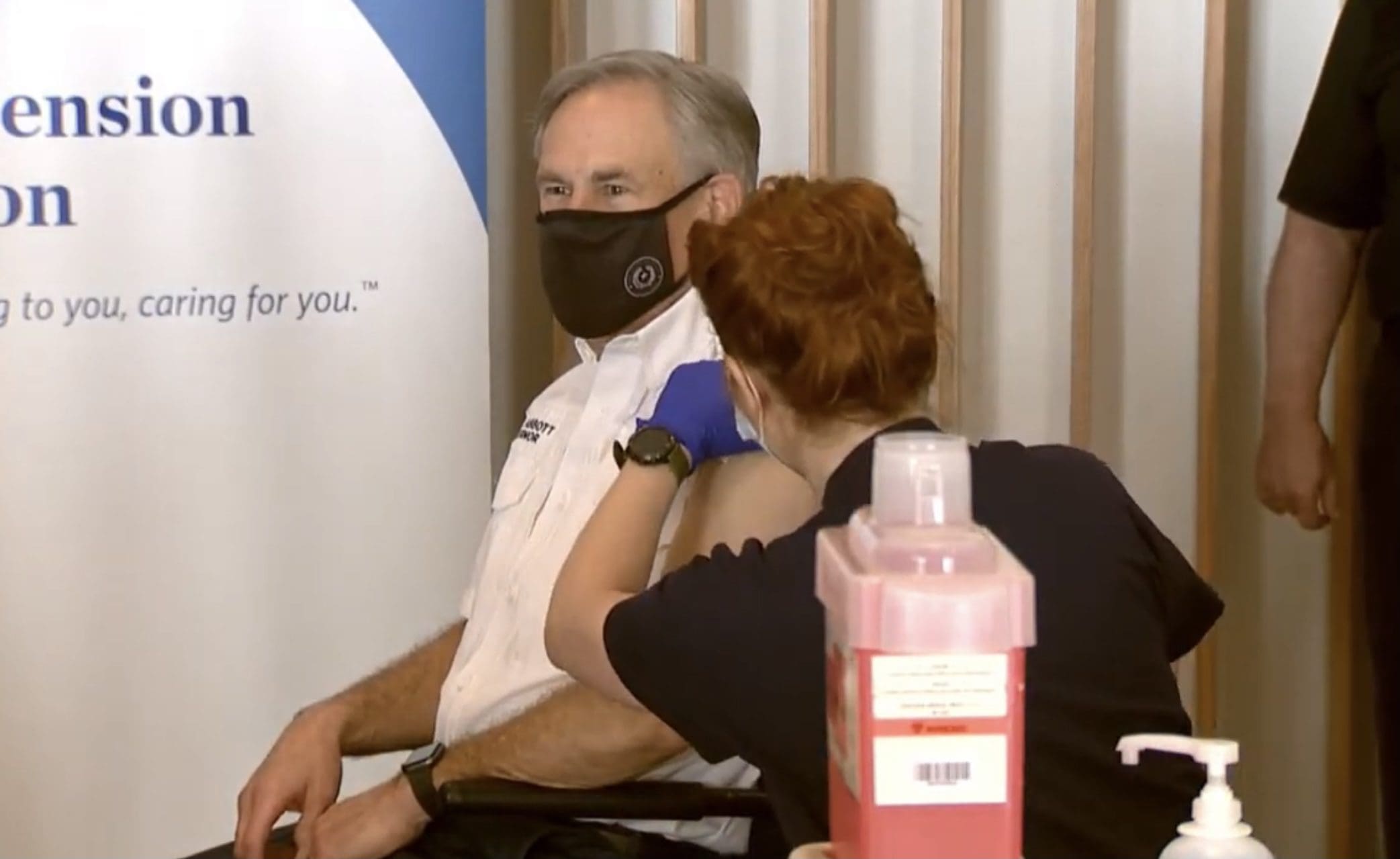More than 1,000 days after Gov. Greg Abbott first issued a state of emergency declaration over COVID-19, Republican State Rep. Brian Harrison of Waxahachie is putting pressure on the governor to end it, saying never-ending emergency authorities are “antithetical to representative government.”
Harrison’s push may be working. On January 16—one day after his previous 30-day order expired—there is no record on the governor’s website or the Legislature Reference Library of another extension.
In a crowded press room in the Capitol on March 13, 2020, Gov. Greg Abbott announced he would be declaring a state of emergency over COVID after 39 cases were reported in the state of Texas.
“Declaring a state of disaster is a key component of these efforts because it allows the state to effectively serve the people of Texas without hindrance or delay,” Abbott said at the time.
The original order was set to expire after 30 days. Instead, it has been extended every month since for 1,039 days.
That emergency declaration has been the basis of every COVID-related executive order issued since—first lockdowns and mask mandates, followed by orders to prohibit local entities from implementing more stringent requirements—all without input from the state Legislature.
The perpetual disaster declaration has ignited a conversation about the proper role of executive authority in emergencies—and when it goes too far. But despite the issue of executive overreach being a stated priority of the Republican Party of Texas in 2021, the state Legislature failed to pass any restrictions on the practice and even refused to vote to end the emergency orders themselves.
In a letter to Abbott, State Rep. Brian Harrison urged the governor to finally put an end to the orders:
According to the Centers for Disease Control and Prevention, the overwhelming majority of our counties are at community levels ow or medium,” and, unlike when the emergency declarations were initially declared, we now have a full suite of medical countermeasures such as vaccines, therapeutics, and diagnostics. These facts, along with sufficient capacity in our world class health care facilities make the almost undeniable case that Texas is no longer under an “emergency” by any definition contemplated by Texas statutes.
Harrison also pressed Abbott to “continue applying pressure to those of us in the legislature to pass laws to protect the medical freedom of our citizens from harmful COVID-19 vaccine mandates.”
Abbott’s office has not responded to inquiries from Texas Scorecard as to whether or not he has extended his most recent order, which was issued on December 16. Texas is just one of 11 states currently in a state of emergency over COVID, and one of two “red” states. Kansas has a Republican-majority legislature and a Democrat governor. Georgia – with a Republican governor and legislature – saw its COVID orders expire without renewal earlier this month.
NOTE: This article was updated for clarity and context about the other states with COVID emergency declarations.
No ads. No paywalls. No government grants. No corporate masters.
Just real news for real Texans.
Support Texas Scorecard to keep it that way!





